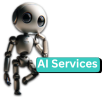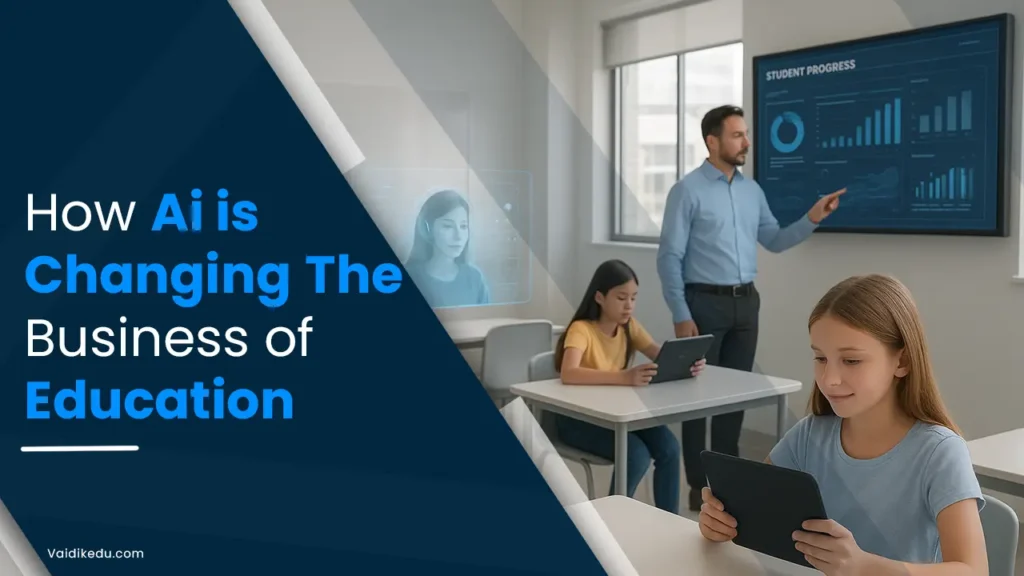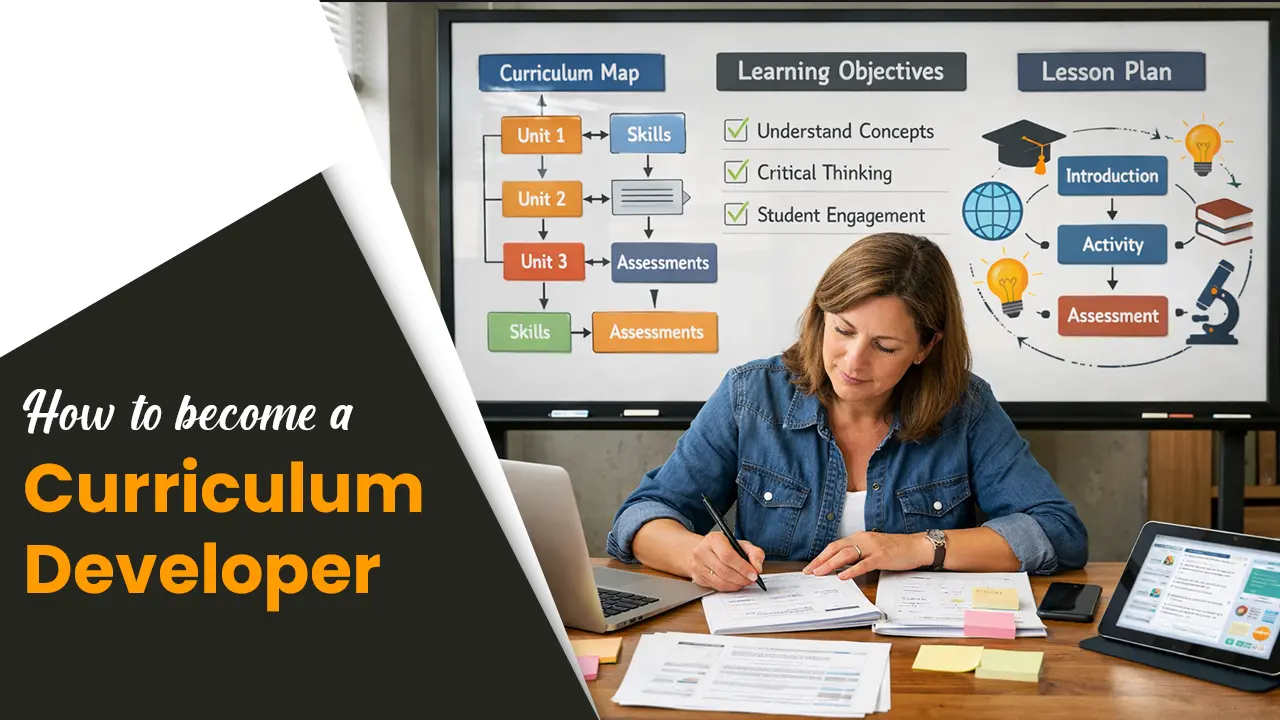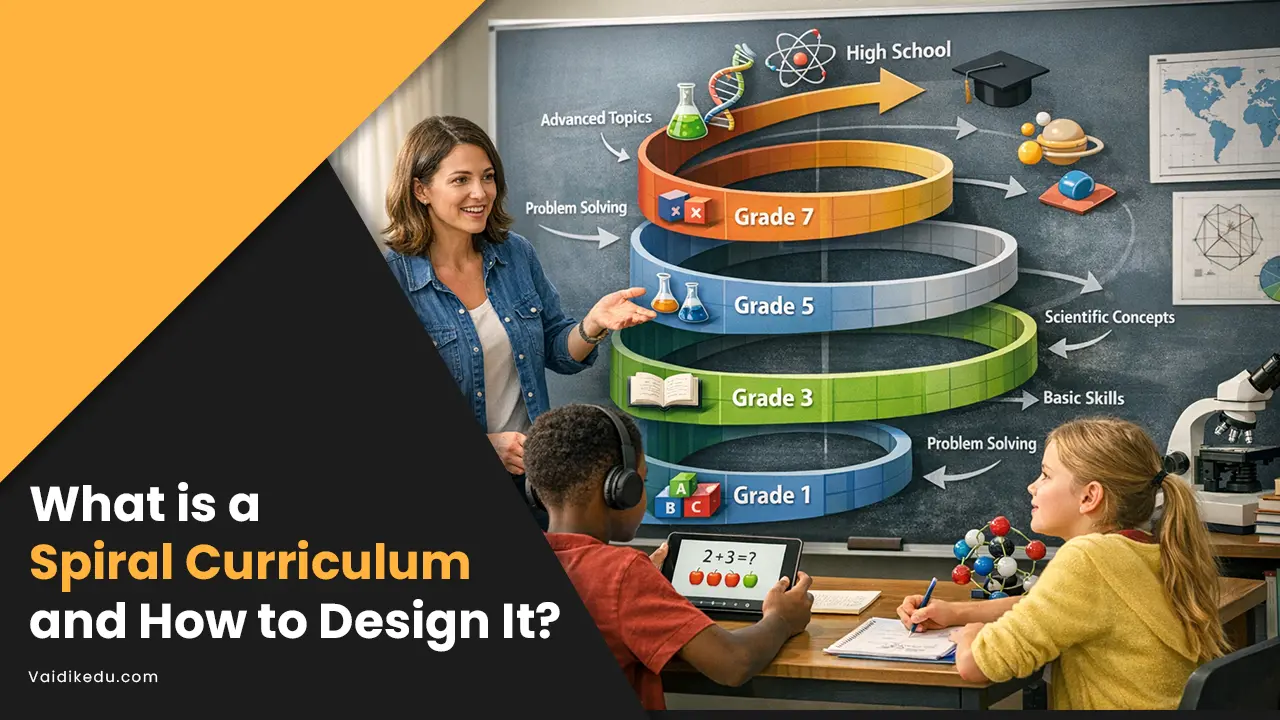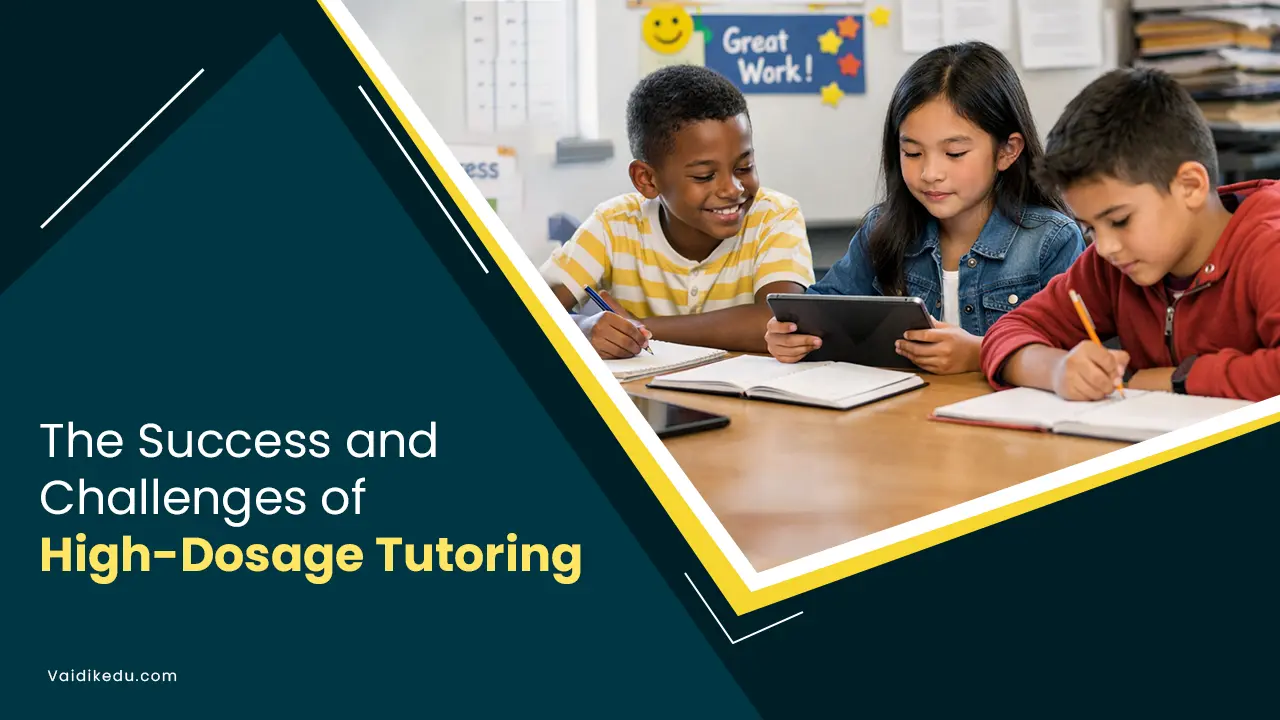The fusion of Artificial intelligence (AI) with education is not just a trend–it is a revolution. Education is no longer confined to classrooms or dictated by rigid curriculums. With AI leading the charge, the business of education is being reshaped in ways that seemed unimaginable a decade ago.
From personalizing learning experiences to automating administrative tasks, AI is paving the way for a smarter, more efficient, and inclusive educational ecosystem.
But what does this mean for students, educators, and the industry at large? Let us dive into the transformative impact of AI in education and how it is redefining its business landscape.
The Personalized Learning Revolution
Individualized Attention, At Scale
AI’s ability to analyze vast amounts of data is unlocking personalized learning like never before. Imagine a virtual tutor that never understands a student’s strengths, weaknesses, and preferred learning style. That is not just science fiction, it is happening now.
Platforms like Coursera and Khan Academy use AI to recommend lessons and exercises tailored to each student’s progress. These systems adapt in real-time, ensuring that no one gets left behind or bored by material they have already mastered.
Why it Matters For Businesses:
Personalized learning is not just a value-add it is becoming an expectation. Companies offering adaptive learning technology are seeing increased demand as schools and institutions shift away from one-size-fits-all approaches.
Breaking Language Barriers
Language translation tools powered by AI are making global classrooms a reality. Students from non-English-speaking countries can now access educational content in their native languages, thanks to innovations like Google Translate and Duolingo.
The business angle: Education providers can tap into new markets without the heavy investment of traditional localization processes. AI simplifies expansion, making education truly borderless.
Automation: A Game-Changer For Efficiency
Streamlining Administrative Tasks
AI is not just about teaching–it is also revolutionizing how educational institutions operate. Administrative tasks like scheduling, grading, and attendance tracking are being automated, freeing up educators to focus on what they do best: teaching.
For instance, AI-driven platforms like Gradescope automatically grade tests and assignments with incredible accuracy. This reduces teachers burnout and ensures timely feedback for students.
Business implications: Automation tools are becoming essential for schools and universities striving to cut costs and improve efficiency. Companies providing such solutions are positioning themselves as indispensable partners in modern education.
Smarter Recruitment And Retention
AI tools like chatbots are transforming student recruitment and retention strategies. Universities use AI-driven bots to answer prospective students’ queries, guide them through the application process, and even offer personalized course recommendations.
Once students are enrolled, AI monitors their performance and engagement, alerting faculty to intervene if someone is at risk of dropping out.
Why it is big business: With competition for students intensifying, institutions are investing heavily in AI to attract and retain talent. This has created a booming market for EdTech companies specializing in AI-driven recruitment and analytics.
The Rise of Virtual Classrooms And Tutors
Anytime, Anywhere Learning
AI-powered platforms like Zoom and Microsoft Teams are redefining remote education. These tools integrate features like automated transcription, real-time translations, and intelligent breakout sessions to enhance virtual learning.
Meanwhile, AI tutors are stepping in to provide 24/7 support. Tools like ChatGPT act as on-demand resources, answering questions and explaining concepts in ways that students can easily grasp.
Business opportunities: The demand for scalable virtual education solutions has skyrocketed, especially post-pandemic. Companies offering innovative AI-driven virtual learning tools are thriving in this evolving landscape.
Bridging The Accessibility Gap
AI is making education more accessible for students with disabilities. Speech-to-text, text-to-speech, and even predictive typing tools are empowering learners with physical or cognitive challenges.
Business impact: Institutions are under increasing pressure to prioritize inclusivity. AI tools that cater to diverse learning needs are not just beneficial they are essential. This opens doors for businesses specializing in accessibility-focused EdTech solutions.
Challenges in AI-Driven Education
Of course, no innovation is without its hurdles.
Data Privacy Concerns
AI thrives on data, but this dependence raises questions about privacy. Schools and companies must navigate strict regulations like GDPR and FERPA while ensuring that student data is protected.
High Initial Costs
AI solutions, especially those involving complex infrastructure, can b costly to implement. Many smaller institutions struggle to afford the upfront investment, despite the long-term benefits.
Ethical Dilemmas
The use of AI in education also poses ethical challenges, such as the potential for biased algorithms or the replacement of human educators in some capacities.
Solutions To Overcome Challenges
Transparent Data Policies
Institutions and EdTech companies need to adopt transparent data practices, ensuring that users understand how their data is collected, stored, and used.
Scalable AI Solutions
Developing scalable and modular AI tools can help smaller institutions adopt these technologies without breaking the bank.
Human-AI Collaboration
AI should enhance, not replace, human educators. By positioning AI as a supportive tool, businesses can alleviate fears about job displacement and focus on the benefits of collaboration.
AI And The Future of Education
The integration of AI in education is still in its infancy, but its potential is enormous. Here’s what the future might hold:
- Immersive Learning: AI-driven VR and AR experiences will take education beyond the classroom, allowing students to explore everything from ancient civilizations to the depths of the ocean.
- Predictive Analytics: AI will predict student performance trends, enabling proactive interventions.
- Global Collaboration: AI will facilitate seamless collaboration between students and educators worldwide fostering a truly interconnected learning ecosystem.
Conclusion
AI is not just changing the business of education it is transforming how we think about learning itself. From personalized teaching methods to efficient administration, AI has the power to make education more inclusive, engaging, and effective.
For businesses, the opportunities are immense. Whether it is developing innovative tools, breaking into untapped markets, or addressing the challenges of AI integration, the education sector is ripe for disruption.
The future of education is here, and it is powered by AI. The question is: Are we ready to embrace it?
Frequently Asked Questions
AI is transforming education by personalizing learning, automating administrative tasks, enhancing accessibility, and providing tools for virtual learning. It helps educators focus on teaching while offering students tailored learning experiences.
AI benefits teachers by automating grading, tracking student progress, and reducing workload. For students, AI offers personalized learning paths, virtual tutors, and accessible tools to help them learn at their own pace.
Challenges include data privacy concerns, high initial costs, and ethical issues like algorithms bias and the fear of replacing human educators.

